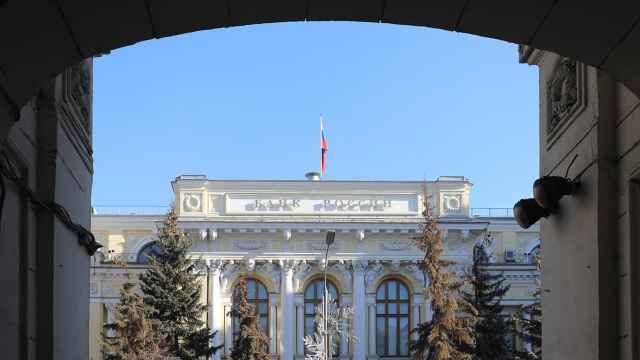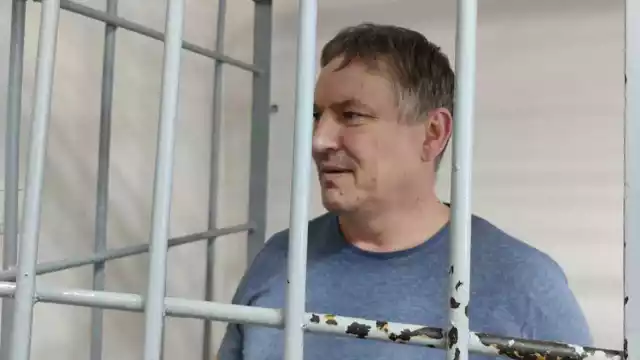Since he took over Crimea, President Vladimir Putin has seen his popularity soar and his opposition fall silent. So when the U.S. vice president told Russia to defuse tensions in Ukraine, Putin had few reasons to listen.
Emboldened by the national euphoria over the annexation of Crimea, Putin has moved against the few remaining critical voices in Russia and further neutered the news media. On Tuesday, a court cleared the way for sending his most vocal critic to prison.
Opposition leader Alexei Navalny was found guilty of slandering a lawmaker and fined the equivalent of $8,400. As a result, he may be jailed during a trial in a second case that starts Thursday. If found guilty, he could be sent to prison.
Navalny was nearly jailed last summer, when he was running a high-profile mayoral campaign in Moscow, but his conviction brought thousands into the streets in protest. The Kremlin evidently calculated it would be better to allow him to run for mayor, but he surprised everyone by finishing a strong second with 27 percent of the vote.
But now Putin, with his approval rating at 80 percent, no longer appears willing to tolerate any criticism.
Chillingly, Putin has begun to cast his critics as "national traitors," an intimation that anyone who opposes the Kremlin is serving the interests of the West. He has compared Russians who oppose his aggressive actions in Ukraine to the Bolsheviks, who took advantage of Russia's defeat in World War I to stage their 1917 revolution.
Navalny, who for years has led a relentless effort to expose government corruption, wrote an opinion column for The New York Times last month that urged the U.S. to impose sanctions on Putin's closest friends as punishment for the takeover of Crimea. The next day, five of the nine people Navalny mentioned were hit.
He understood that the Kremlin would make him pay for taking delight in the sanctions. "Time to pack a bag for jail," said a post on his Twitter feed.
The travel bans and asset freezes imposed on Russian officials by the U.S. and European Union have been greeted publicly by bravado and ridicule in Moscow, with those targeted proclaiming themselves proud to have made the sanctions list. But the sanctions have hurt Russia's economy by spooking investors and driving up inflation as the ruble has lost value.
A Message from The Moscow Times:
Dear readers,
We are facing unprecedented challenges. Russia's Prosecutor General's Office has designated The Moscow Times as an "undesirable" organization, criminalizing our work and putting our staff at risk of prosecution. This follows our earlier unjust labeling as a "foreign agent."
These actions are direct attempts to silence independent journalism in Russia. The authorities claim our work "discredits the decisions of the Russian leadership." We see things differently: we strive to provide accurate, unbiased reporting on Russia.
We, the journalists of The Moscow Times, refuse to be silenced. But to continue our work, we need your help.
Your support, no matter how small, makes a world of difference. If you can, please support us monthly starting from just $2. It's quick to set up, and every contribution makes a significant impact.
By supporting The Moscow Times, you're defending open, independent journalism in the face of repression. Thank you for standing with us.
Remind me later.





